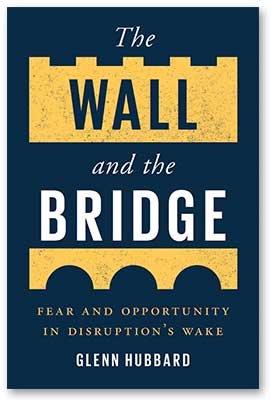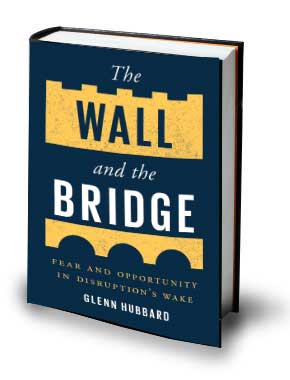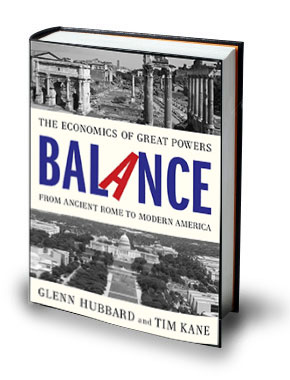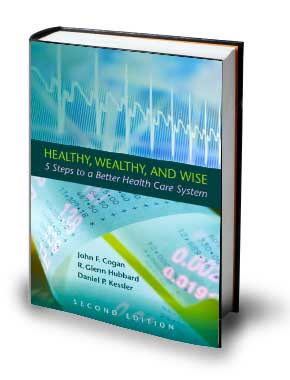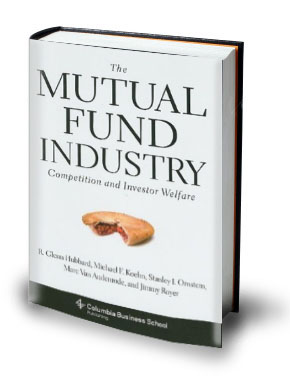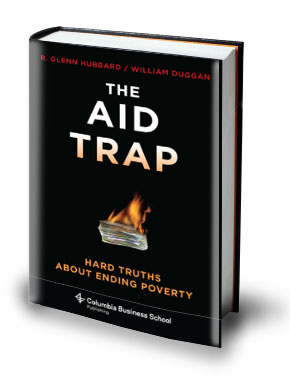 The Federal Reserve is spending hundreds of billions of dollars to spur
economic growth and keep interest rates low. But most homeowners who
really need a lower interest rate can't qualify. And foreclosures remain
at record levels.
The Federal Reserve is spending hundreds of billions of dollars to spur
economic growth and keep interest rates low. But most homeowners who
really need a lower interest rate can't qualify. And foreclosures remain
at record levels.
Listen to the story on NPR.org
Many economists want bolder action from Washington.
With Republicans winning control of the House, many people are asking what kind of meaningful legislation both parties could actually agree on.
Some prominent economists are suggesting a plan that they say won't cost taxpayers any money; it would save millions of Americans thousands of dollars on their mortgages every year. And it would help all kinds of people — some who are in good financial shape, and others who are just barely managing to hang onto their houses.
Unemployed And Desperate To Refinance
Bill Trabucco was among 5,000 homeowners who showed up at a recent foreclosure prevention event in Boston. Trabucco, 42, who lost his job in April as an emergency medical technician, says it's the first time in his life he's been on unemployment. "I'm here like many others seeking relief to hang onto my family home that I've been in for 30 years now," he says.
Trabucco says he's desperate to refinance at today's low rates — around 4 percent for a 30-year fixed-rate loan. That would save him $350 a month on his mortgage. But he can't qualify because he's out of work.
Millions of other Americans don't qualify because they don't have a near-perfect credit score, or their homes have declined in value.
"I just really don't understand the banks," Trabucco says. "I'm not looking for a handout."
He says just being able to refinance at the low rates available to others would enable him to stay in his home.
Fannie And Freddie As Gatekeepers
Trabucco found out at the event that his loan is owned by the government-backed mortgage company Fannie Mae, which has taken around $100 billion in taxpayer bailout money.
"Are you kidding me?" Trabucco says. "You got billions of dollars of taxpayer money, and you're going to tell me I don't qualify because I'm on unemployment?"
It might seem obvious that Fannie Mae or the banks have good reason not to lend money to someone who's out of work. But Trabucco isn't borrowing more money. He just wants to refinance.
And more economists are saying he should be able to accomplish this. Fannie Mae and Freddie Mac are in a unique position right now. Because of the uncertainty in the economy, almost all new mortgages that get written or refinanced have to have guarantees from Fannie or Freddie.
So, in that sense, they have become the gatekeepers of who can refinance and who cannot. And they've been charging penalties and fees based on credit scores, home values and employment status — a practice that might make sense for new loans. But some economists say it's counterproductive for refinancing.
Refinancing For Millions
Christopher Mayer and R. Glenn Hubbard, economists at Columbia University, have introduced a plan that calls for Fannie and Freddie to guarantee home loans for more than 30 million people across the country.
Since the government backs Fannie and Freddie, it has already stepped in to guarantee all of these loans.
"The government is on the hook for about 60 percent of all the mortgages outstanding," Mayer says. He says that's why it makes sense to let Americans like Trabucco refinance.
Now, most can't because their credit score isn't good enough, their house has fallen in value, or they're unemployed. But Mayer says none of that should matter.
If these home loans go bad, he says, U.S. taxpayers take huge losses. But if Fannie and Freddie extend the same guarantee they already have given on those loans — to cover them once they're refinanced, without any penalties — that would allow millions of Americans to go to a bank and refinance at today's low rates.
Billions In Potential Savings
Mayer and Hubbard say if Fannie and Freddie allowed this to happen, U.S. homeowners would save $50 billion a year on their mortgage payments. That's a lasting stimulus that could boost consumer spending and the economy.
It would also mean fewer foreclosures, which would help the housing market.
"The big benefit of this program is that it does not cost taxpayers money," Mayer says.
That's because the rates are available on the open market, and fewer foreclosures will mean fewer losses to Fannie and Freddie and the U.S. taxpayer. Mayer says the plan would likely save taxpayers money.
But some economists think there would be unintended consequences. Critics don't believe it really wouldn't cost taxpayers money, and they note that there would also be some other losers: If U.S. homeowners ultimately save about $50 billion a year, then that money would have to come out of the pockets of investors around the world.
This begins Part Two of this story:
Terry Riccio runs a pet taxi service in Boston called Fetch 4-Legged Limo. For around $50, she'll take an elderly person's dog to and from the vet.
She'll even pick up turtles and snakes.
But getting her hands around today's low interest rates is proving to be an even slipperier task.
"Even though I can pay my mortgage, the banks won't even look at me because it's a lot more strict than it was in the past," Riccio says.
Blocked From Refinancing
Just because mortgage rates are at historic lows doesn't mean homeowners can qualify to refinance. Most Americans can't because their credit scores aren't perfect, their houses have lost value or they've lost income.
As a result, tens of millions of Americans have been effectively blocked from saving hundreds of dollars a month by refinancing.
If Riccio could qualify for today's low rates, which are well below 4.5 percent, she would save $450 a month on her mortgage.
"We would avoid more foreclosures, people would be happier and I think the economy would get a lot better" if everybody could access the low rates, Riccio says.
That's basically what some economists are proposing — at least for some 30 million Americans. The premise of the idea is that because of the financial crisis, the federal government has already guaranteed 60 percent of existing home mortgages.
So, since the government is on the hook anyway, allowing all those people to refinance at today's low rates will make defaults less likely — and save homeowners money.
A 'Tax Cut' To Stimulate Economy
"You'd be giving what amounts to a tax cut for the life of the mortgage," says R. Glenn Hubbard, an economist at Columbia University who helped come up with this proposal together with his colleague Christopher Mayer.
Hubbard says that extra spending money would help stimulate the economy. He says it's a sizable chunk of money — as much as a few thousand dollars per year for many, many years.
In total, Hubbard says, the savings would add up to around $50 billion a year.
Political Prospects
Hubbard is the former chief economic adviser to President George W. Bush. So, the plan is being pushed by a Republican. And some 30 Democrats in Congress have already co-sponsored a bill to make this happen.
Could this be something Republicans and Democrats actually agree on?
"I think it might," Hubbard says. He says both parties will be focused on the economy and jobs.
"The real question is whether there will be any stimulus bill at all," he says. If there is one, Hubbard says, he would expect the proposal to be part of it.
He says the plan won't cost taxpayers money — an attribute that could help win support from both parties. It would just let more people qualify for market interest rates.
Critics Of The Plan
But others aren't so sure the plan is a winner.
"I don't think this will end up working," says Anthony Sanders, a finance professor at George Mason University.
Sanders and other skeptical economists say the plan exaggerates the savings to homeowners and underestimates the costs and barriers to making this work. They say banks might throw up roadblocks. Some might even demand to be free of any legal responsibility for any loans they make — a scenario that could create problems.
Insurance companies also might not go along. And the biggest problem seems to be that this is not free money.
Sanders says he's "very scared" by the notion of giving $200 or $500 a month to millions of households because "that's not free — it comes out of somebody's pocket."
Impact On Investors
The $50 billion for homeowners will come out of investors' pockets. For example, community banks have mortgage holdings that could take a hit. Pension funds and hedge funds might also suffer. Speculators around the world have made bets that so many loans wouldn't be able to refinance into better rates.
Some investors are going to "lose out based on that refinancing," says Tom Deutsch, the executive director of the American Securitization Forum, which represents some mortgage investors.
"There is some division within the investment community about whether this would be an appropriate program and would be in their best interest," he says.
At least one big investor has a favorable outlook toward the plan.
"This seems like a no-brainer," says Scott Simon, a managing director at the investment firm PIMCO, where he oversees upwards of $200 billion worth of mortgage-backed securities.
Simon thinks the overall economic benefits would more than offset any damage to mortgage investors.
A senior Treasury Department official says the agency is "continuing to refine the administration's housing policies."
Some economists think a likely next move for the government would be to launch a scaled-down version of the plan.
Mayer and Hubbard say they hope it won't be so scaled down that it prevents many Americans from saving hundreds of dollars a month on their home loans.
By Chris Arnold, NPR.org

